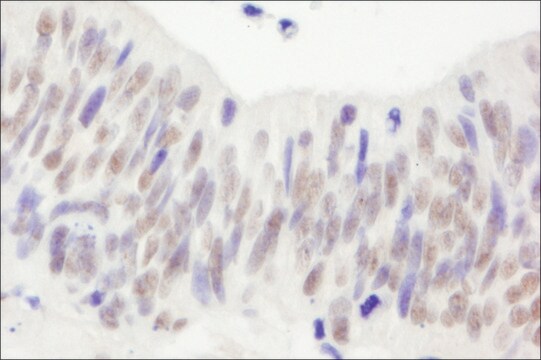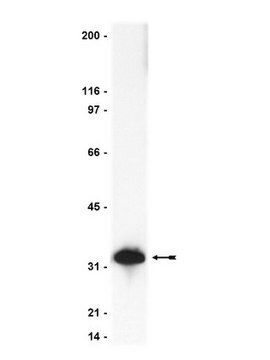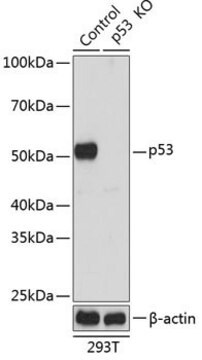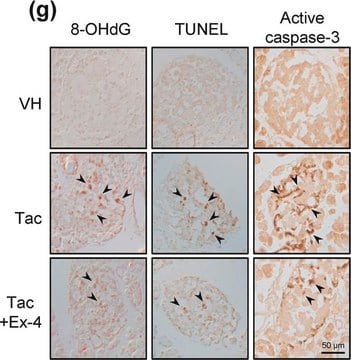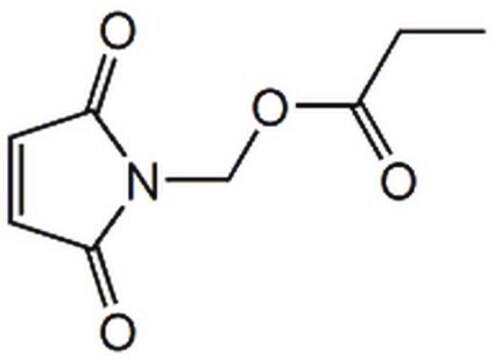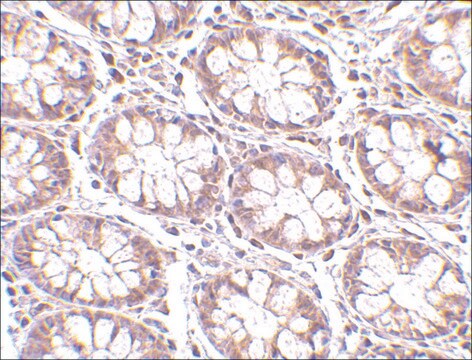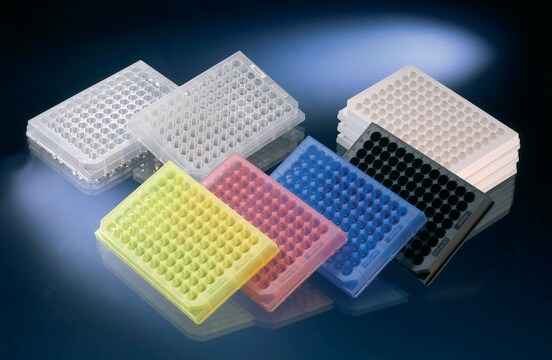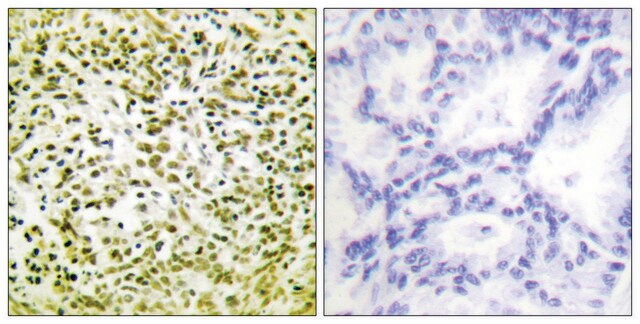PLA0072
Rabbit anti-p53 Antibody, Affinity Purified
Synonym(e):
BCC7, LFS1, Li-Fraumeni syndrome, TRP53, Tumor suppressor p53, antigen NY-CO-13, mutant tumor protein 53, p53, p53 tumor suppressor, phosphoprotein p53, transformation-related protein 53, tumor protein 53, tumor supressor p53
About This Item
FACS
IHC
IP
WB
flow cytometry: 1.5 μg
immunohistochemistry: 1:1,000- 1:5,000
immunoprecipitation (IP): 2-5 μg/mg
western blot: 1:2,000-1:10,000
Empfohlene Produkte
Biologische Quelle
rabbit
Qualitätsniveau
Antikörperform
affinity purified immunoglobulin
Antikörper-Produkttyp
primary antibodies
Speziesreaktivität
human
Methode(n)
ChIP: 4-30 μg
flow cytometry: 1.5 μg
immunohistochemistry: 1:1,000- 1:5,000
immunoprecipitation (IP): 2-5 μg/mg
western blot: 1:2,000-1:10,000
Hinterlegungsnummer
P04637
Versandbedingung
wet ice
Lagertemp.
2-8°C
Posttranslationale Modifikation Target
unmodified
Angaben zum Gen
rabbit ... p53(7157)
Allgemeine Beschreibung
Immunogen
Biochem./physiol. Wirkung
Physikalische Form
Sonstige Hinweise
Haftungsausschluss
Sie haben nicht das passende Produkt gefunden?
Probieren Sie unser Produkt-Auswahlhilfe. aus.
Lagerklassenschlüssel
12 - Non Combustible Liquids
WGK
nwg
Flammpunkt (°F)
Not applicable
Flammpunkt (°C)
Not applicable
Hier finden Sie alle aktuellen Versionen:
Analysenzertifikate (COA)
Leider sind derzeit keine COAs für dieses Produkt online verfügbar.
Wenn Sie Hilfe benötigen, wenden Sie sich bitte an Kundensupport
Besitzen Sie dieses Produkt bereits?
In der Dokumentenbibliothek finden Sie die Dokumentation zu den Produkten, die Sie kürzlich erworben haben.
Unser Team von Wissenschaftlern verfügt über Erfahrung in allen Forschungsbereichen einschließlich Life Science, Materialwissenschaften, chemischer Synthese, Chromatographie, Analytik und vielen mehr..
Setzen Sie sich mit dem technischen Dienst in Verbindung.
